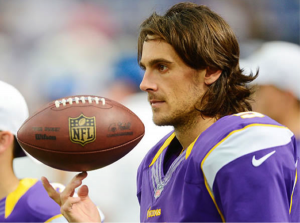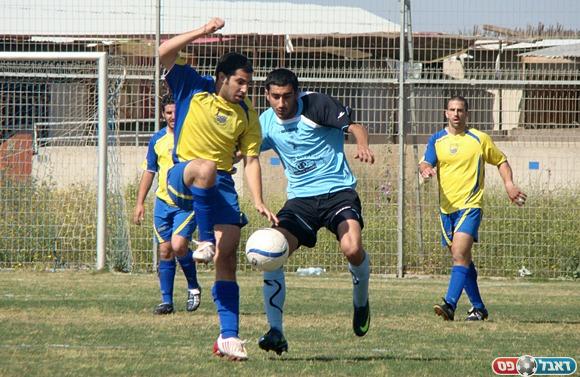 By: Chris Lewitzke
By: Chris Lewitzke
Usually, punters try their best not to be noticed during a football game. Typically the scrawniest player on the field—unless he badly shanks a kick or botches the hold of a field goal—the punter will only touch the ball a handful of times throughout the game and have little impact on the final outcome. In fact, not a single punter has been elected into the NFL Hall of Fame; they simply fly under the radar for an uneventful career and ride off into the sunset in their late 30s. Throughout his career, however, punter Chris Kluwe’s outspoken views about his fellow players and gay rights activism have been making waves. On Jan. 2, though, Kluwe made the biggest splash of his career by writing an article for Deadspin titled “I Was An NFL Player Until I Was Fired By Two Cowards And A Bigot.
To sum it all up, Kluwe was employed as a punter by the Minnesota Vikings from 2005-2012. During his years in Minnesota, he was a good, but not great punter compared to his NFL peers. However, Kluwe does hold many career Vikings punting records and provided stability in the position for Minnesota. While Deadspin published the article just a few weeks ago, the Kluwe saga begins during the summer before the 2012 NFL season. Before the season, Kluwe was approached by Minnesotans for Marriage Equality, a group working toward the defeat of the Minnesota Gay Marriage Amendment, which would have banned gay marriage in Minnesota (the amendment was subsequently voted down). Over the course of the next months, Kluwe candidly spoke out in support of gay marriage, making headlines in September when he called a Maryland state delegate “close-minded” and more.
Following the controversial letter, Kluwe says several members of the Vikings front office spoke to him, including Head Coach Leslie Frazier urging him not to be so outspoken. The biggest backlash, however, came from Special Teams Coordinator (and Kluwe’s direct supervisor) Mike Priefer. In Kluwe’s story he states that throughout the 2012 season, Priefer, made numerous offhanded remarks about the sinfulness and despicability of gay marriage. In November, Priefer went so far as to say “We should round up all the gays, send them to an island, and then nuke it until it glows.”
On May 6, the Vikings released Chris Kluwe following mounting tension between Kluwe and the front office, having drafted a new punter days earlier. Mike Priefer denies Kluwe’s account of the events, and the Minnesota Vikings have launched an investigation into Kluwe’s claims.
Whether or not Kluwe’s version of the events is entirely accurate is largely unimportant. The major issue at hand is the lack of acceptance and representation of gay athletes in today’s major American sports. In April 2013, Jason Collins became the first “active” professional athlete in a major American sport (football, baseball, basketball, and hockey) to come out as gay. “Active” is in quotes because at the time of his announcement, Collins wasn’t signed by an NBA team, and, even though he was open to the idea of playing another year in the NBA, he has yet to set foot on the court as a player since coming out.
In today’s society, being gay is associated with certain stereotypes: theater, dance, fashion, and other activities that play into the creation of “a typical gay man.” Some of the most famous gay men right now are Neil Patrick Harris, Elton John, and Anderson Cooper. In fact, there are numerous homosexual men doing innovative things in their industry and being amazing role models for the next generation.
Unfortunately, though, gay children don’t have any role models when it comes to sports. When not a single athlete out of the 3,500 players in the NFL, MLB, NBA, and NHL has come out as openly gay, it sends a message to kids that if they’re gay, sports aren’t the right place for them. However, the idea that a gay athlete wouldn’t be accepted in the locker room just isn’t true. A majority of players in every sport said they would accept an openly gay athlete in the locker room. Hockey players were the most open, though, with nearly 80 percent of active players saying they would accept a gay teammate.
Even though Chris Kluwe isn’t gay himself, what he’s trying to do is break the stereotype that team sports and homosexuality are two areas that shouldn’t be mixed. He hasn’t been acting alone either. Kluwe wrote a letter to Maryland Representative Emmett Burns because he told the Baltimore Ravens to stop their player Brendon Ayanbadejo from speaking out in support of a marriage equality law. In addition to Kluwe and Ayanbadejo, NHL player Sean Avery, MLB player Justin Verlander, and NBA player Steve Nash have all publicly supported gay marriage laws.
Jackie Robinson famously paved the way for black athletes when he broke baseball’s color barrier in 1947. What made Robinson so impactful was his success on the field; he won Rookie of the Year, was recognized as MVP, and went to six consecutive All-Star games for the Los Angeles Dodgers. Recently, Jeremy Lin broke another , albeit more subtle, color barrier in professional sports when he became the first Chinese-American NBA player and the first successful Asian-American professional basketball player when he burst onto the New York scene in 2012.
Like these examples, the sexuality barrier in professional team sports has stayed up for far too long. Kids across the country need a successful, openly gay athlete to show them that they can play whatever sport they want even if they’re gay or questioning their sexuality. Chris Kluwe didn’t just bring light to an isolated issue in the Vikings front office, he brought light to the fact that there are still people in the sports industry who wouldn’t welcome gay athletes. By publicly calling out Mike Priefer, Kluwe made it a little bit easier for a gay NFL player to come out and break that barrier.
One of the worst things we can do as a society is instill ideas in children’s minds that what their appearance, their origins, or their sexuality should dictate how they act. Unfortunately, though, until we see greater acceptance of gay athletes and the first successful publicly gay athlete in a team sport, too many children will doubt whether they belong in the locker room.

